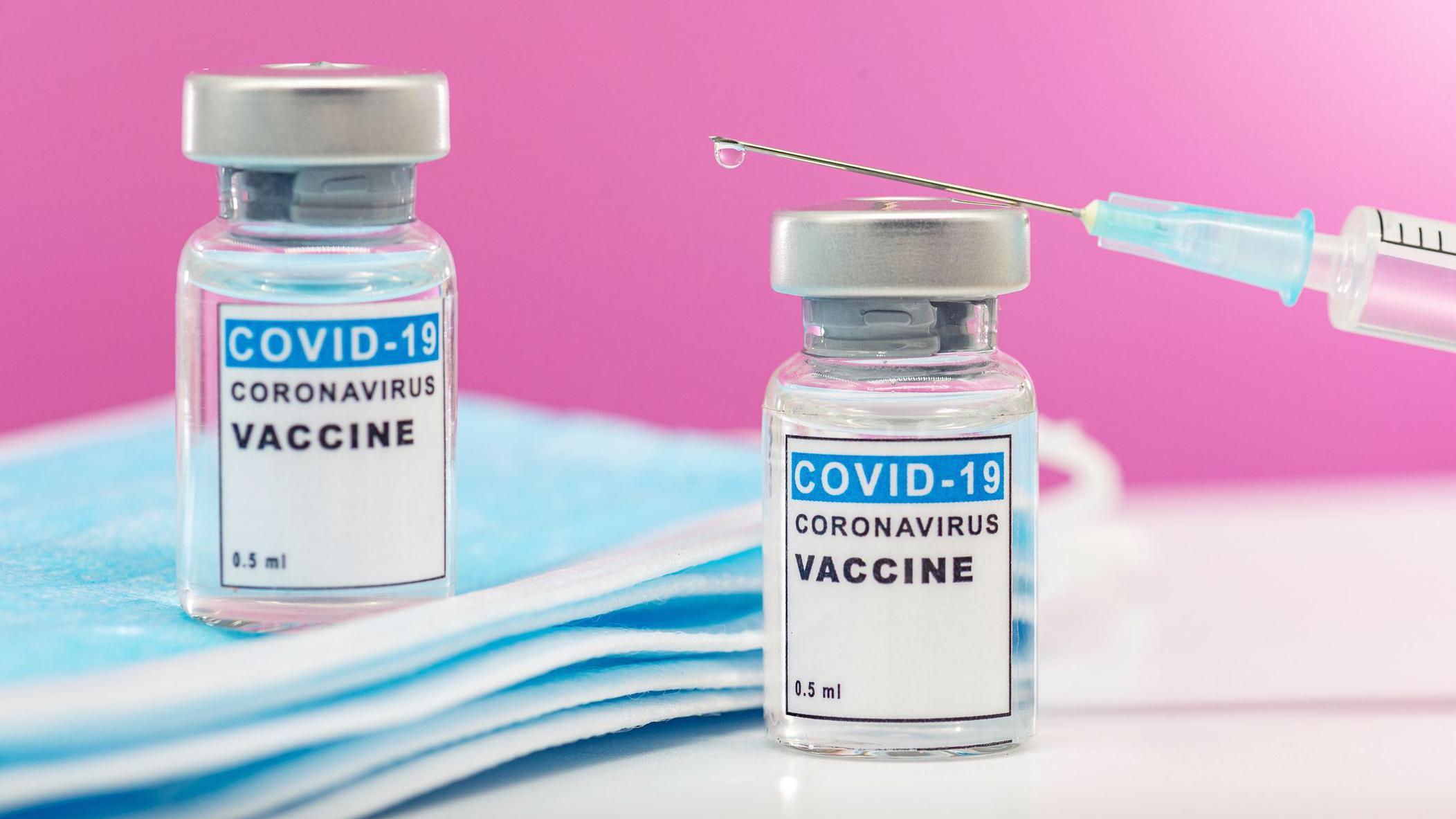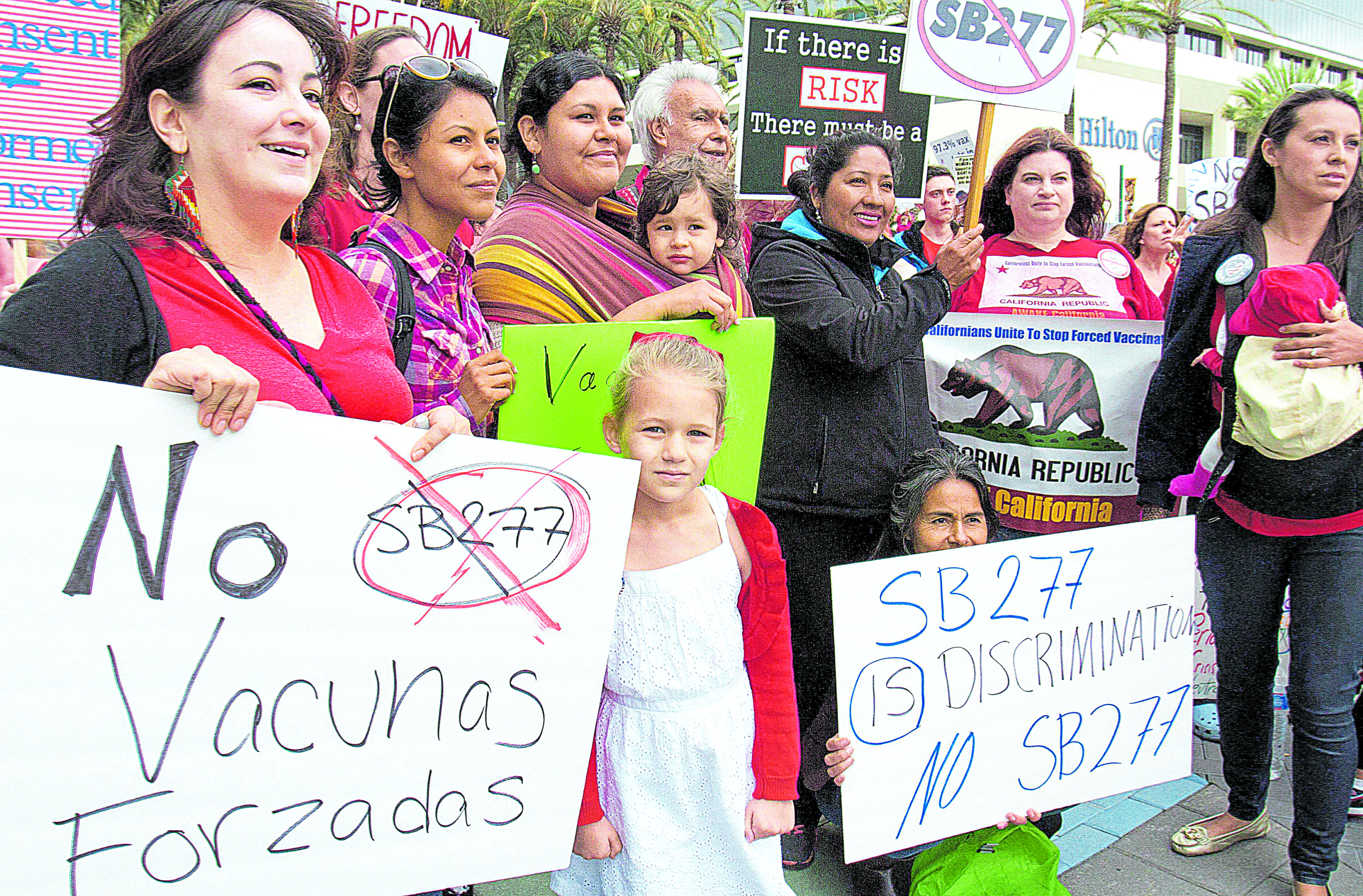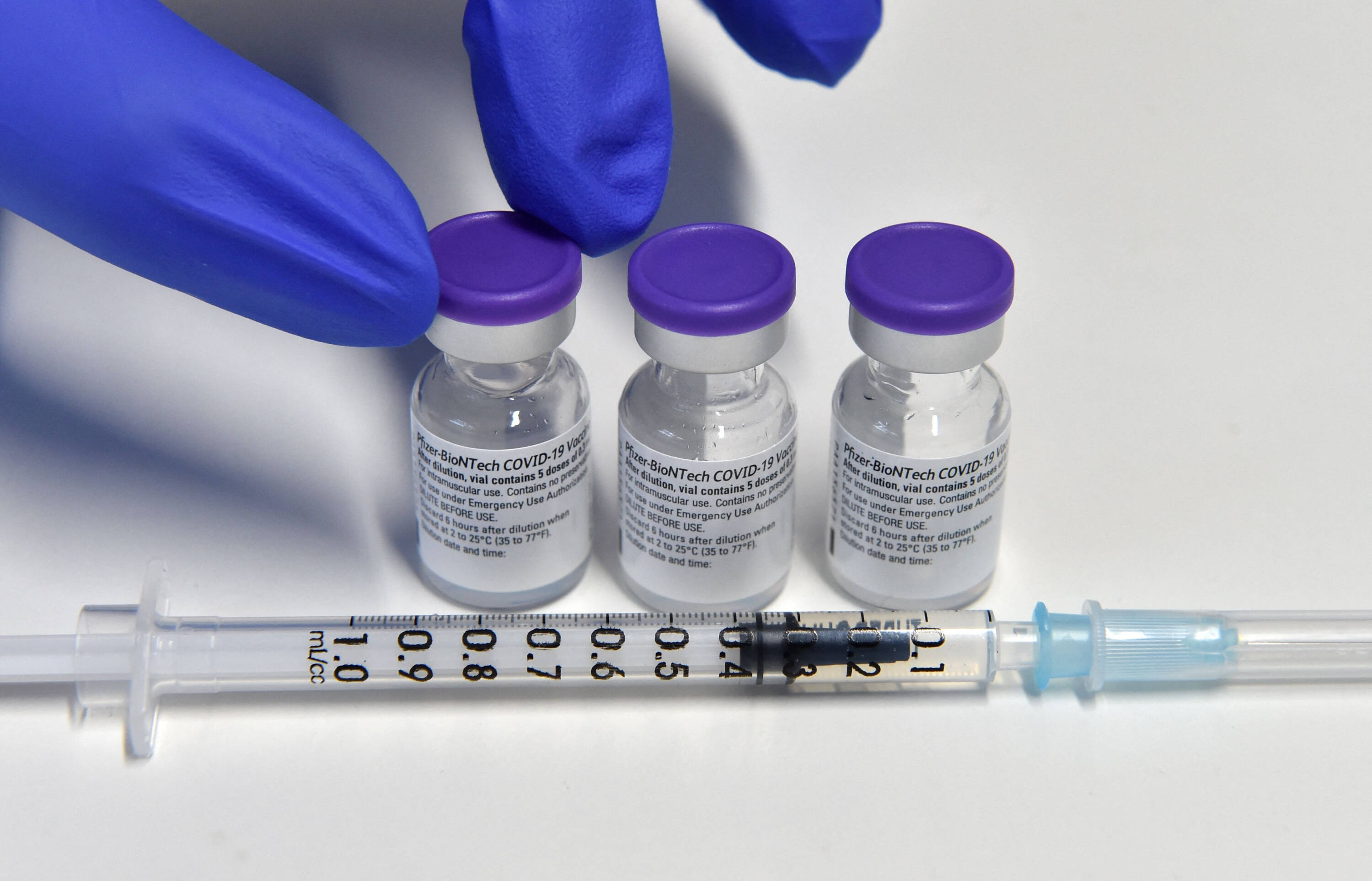'When I see an anti-vaccine person, I think about how to educate them': Nobel Prize winner in Medicine

Katalin Karikó doesn't hold the slightest grudge against those who hampered her scientific career, denied her funding, and even forced her to move to another country. She forged ahead, convinced that she had something important in her test tubes.
And she was right: even before the 2023 Nobel Prize in Medicine, she had received dozens of major scientific awards. What did this Hungarian woman, now 70, do? Karikó was the one who developed the messenger RNA technique that enabled a new vaccine platform, the success of which helped alleviate the COVID-19 pandemic since late 2021. It's the vaccine produced in Germany by BioNTech, which later partnered with Pfizer to distribute it worldwide. It's also a platform that is being tested for many other diseases, including certain types of cancer.
The fact that hundreds of millions of people have something in their bodies that began to develop in her laboratory doesn't make her proud at all, nor does she believe she's saved millions of people, as she did. "The true heroes of the pandemic were the health workers," she says, and it doesn't seem to be a pose. Although the anti-vaccine movement in the US does make her sad. "Because of my philosophy, when I see an anti-vaccine person, what I think about is how to educate them, how to get them to understand the benefits of vaccination," she added in a Zoom conversation with La Nación of Argentina.
When taking stock of the pandemic, what has been learned in these five years and what remains to be learned?
We've learned a lot, although in the United States it seems they haven't realized it yet. People haven't been adequately educated about science and what we scientists do. We have to translate it into simple language that everyone understands; otherwise, they'll get angry at us. Or they'll say, "We give you the money (as long as we pay taxes) and in return you give us a medicine we can't afford."
When I ask students to name hockey stars – it happened to me in Canada – they all raised their hands, but they couldn't name a single local scientist.
So is it a communication problem?
Yes. That's what happens in the United States. They think scientists are an elite, those with the knowledge, and that we don't care about the rest. When I ask students to name hockey stars, as happened to me in Canada, they all raised their hands, but they couldn't name a local scientist. I told journalists they should talk more about us, but they told me those were topics that didn't interest the audience.
How have you seen the evolution of your mRNA technology after the vaccine's success? Did you expect such growth and that it would be sought for applications across a wide variety of diseases?
Sometimes people write to me asking if there are any studies using this technique for this or that disease, so I start looking, and most of them are in China. If they continue this dirty war in the United States and the research stops, they should know that work is still going on on the other side of the world. The advancement of science and technology there is so immense that they're doing in vivo editing with Cas9 (the Crispr technique), something that isn't yet done in the Western world. So they're also making progress with mRNA. There are many vaccines in development against viruses, bacteria (such as tuberculosis), and Lyme disease. There's also a clinical trial with mRNA for malaria, which is caused by a parasite. In oncology, research is underway for different types of cancer, enabling antibodies to recognize antigens on the surface of the cancer with mRNA; to encode cytokines that stimulate the immune system within the tumor for injection. This is also true for genetic diseases, such as cystic fibrosis. And an American company is using it for phase III myasthenia gravis and phase I lupus. There's a temporary craze in the United States now, and perhaps scientists from that country will move to China to do research.
Not yet, but that's the way it is. People go to the places where the really interesting stuff happens. You only have one life; you can't just wait around. If you can leave to learn, you do it, and then you go back to your country.

The vaccines used mRNA technology. Photo: Getty Images
I know this is a question you've already answered, but are you aware of how many lives you've saved from COVID-19?
It wasn't just me. There were many of us. I always emphasize that the true heroes of the pandemic were the doctors and nurses, the healthcare workers who cared for the sick, even the hospital cleaners. They truly risked their lives. Not me… Those people are heroes, along with the volunteers who put their arms out for the vaccine test.
But it is also true that without the vaccine you developed, nothing would have been possible.
I don't take it that way; I don't take credit for all of that, in any way. I never sought recognition or for people to talk about me. We created a product, without publications, without names, in pursuit of doing something useful.
And speaking of vaccines, how do you view the anti-vaccine movement? Do you think there's any reason behind it?
It's very sad. At least two girls have already died of measles in Texas, United States. Now it seems that Kennedy (the Secretary of Health) has said that vaccination is necessary amid the outbreak. He had previously recommended alternative therapies like cod liver oil. But measles kills, and it's even possible for those affected to suffer after-effects, although not fatal, because the virus can cause brain damage and other types of harm. My philosophy is stoic; I focus on what I can do. So, when I see an anti-vaxxer, what I think about is how to educate them, how to get them to understand the benefits of vaccination. People educate themselves on immunology through YouTube or Facebook and say stupid things. The traditional measles and rubella vaccines contain RNA in some form. And now it seems the existence of RNA vaccines is a problem.

Protest in California against a bill to eliminate exemptions for vaccination. Photo: Efe
As a Stoic, do you have confidence in humanity, in its future?
I'm an optimist and a cheerful person. I find what I can do. Ten years before receiving the Nobel Prize, the University of Pennsylvania terminated my contract and fired me after 24 years of work. I didn't complain, I didn't think, 'Why me, I worked Saturdays, Sundays, and holidays?' No, I tried to focus on what was to come. No regrets or revenge. It was over and done with. Just like now, at 70, I could just sit around, but no, I think about what else I can do.
The feeling that she was not treated well throughout her career does not affect her then.
I don't blame anyone. The person who kicked me out was having brain surgery when he told me, 'Well, if you don't have any way to finance yourself, you're going to have to leave.' It was that simple. Today I see him and talk to him. In fact, the last time I saw him, he told me he was going to give a talk about me entitled 'How We Lost Her.' I laughed. I have no negative feelings toward him.
Were the ten years of work in Germany better?
I started working with mRNA in 1989, with improvements all the time and increasing amounts of proteins generated, which we could inject into (laboratory) animals. And we realized it could be a type of medicine. When I went to BioNTech, which is an immuno-oncology company that uses RNA, I thought we could develop certain programs. When I arrived in 2013, they already had a clinical trial for a vaccine as a cancer treatment. That's why I went, because they already had a trial and could produce quality RNA suitable for a clinical trial. I wanted to use modified RNA for therapy. I told Ugur (Ugur Sahin, founder of BioNTech) that I would go if I could use what they already had.
And why were you so convinced that the technique could work?
Because I could see the effect. RNA, which is produced from DNA, is obtained after isolating it from bacteria. Initially, when it's extracted, it comes with many enzymes that degrade the RNA. And that contaminates the entire lab. For this reason, when I said I was going to work with RNA, everyone felt sorry for me because everything would be contaminated. But I managed to extract it using a technique that didn't contaminate it. I could see the progress, and I got the RNA to tell the cell how to obtain functional proteins, even when it was 'decorated' with things like sugars. Since cells are very smart, they got the message, and the proteins became functional.

Pfizer-BioNTech vaccines. Photo: Christof STACHE. AFP
With the advancement of knowledge and modifications at the cellular level, some scientists dare to suggest that humans can live hundreds of years, and are even tempted to talk about immortality. What do you think?
Hundreds of years? No. Besides, who wants to live forever? It's fine to be 70 or 80 and feel young, but not much longer because the tips of chromosomes get shorter as time goes by. The clock is incorruptible.
How much did your life change after the Nobel Prize?
I have to say that just before the Nobel Prize, between 2021 and 2023, I was showered with awards—more than a hundred. I was so overwhelmed. Obviously, the Nobel Prize is the most famous, and from then on, people recognize me on the street in Hungary. But I'm not that kind of person; it doesn't go to my head; I'm too old now. I don't feel like I deserve anything special for what I've done. So it didn't change much… Look, in one week I received honorary doctorates from Rutgers University, then from Harvard, and four days later from Princeton. It was incredible to receive so many honors.
Perhaps from the same people who denied him funding.
Everyone remembers me there. But I don't argue with them. Because of my stoic philosophy, there's no need to worry; you have to maintain the body's homeostasis, move forward, and not talk about the past. I don't care. I go back there and I'm happy and grateful.
For the Nation (Argentina) - GDA
(*) This article is an edited version of the original.
eltiempo


%3Aformat(jpg)%3Aquality(99)%3Awatermark(f.elconfidencial.com%2Ffile%2Fa73%2Ff85%2Fd17%2Fa73f85d17f0b2300eddff0d114d4ab10.png%2C0%2C275%2C1)%2Ff.elconfidencial.com%2Foriginal%2F045%2F745%2Fcad%2F045745cad7ee424422ef29d552d5a638.jpg&w=3840&q=100)

%3Aformat(jpg)%3Aquality(99)%3Awatermark(f.elconfidencial.com%2Ffile%2Fa73%2Ff85%2Fd17%2Fa73f85d17f0b2300eddff0d114d4ab10.png%2C0%2C275%2C1)%2Ff.elconfidencial.com%2Foriginal%2F68c%2F3bc%2F0ee%2F68c3bc0ee1e801b1ef1b8f84960b845c.jpg&w=3840&q=100)
